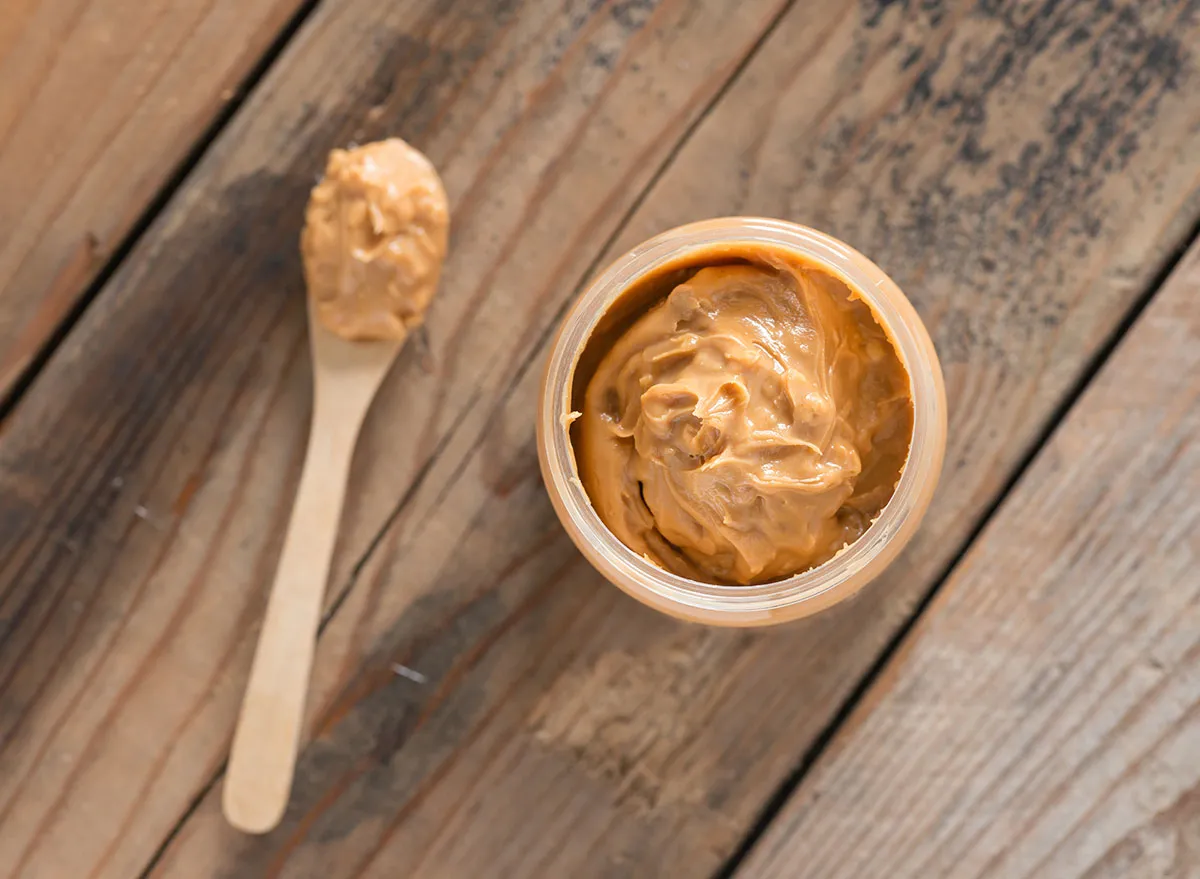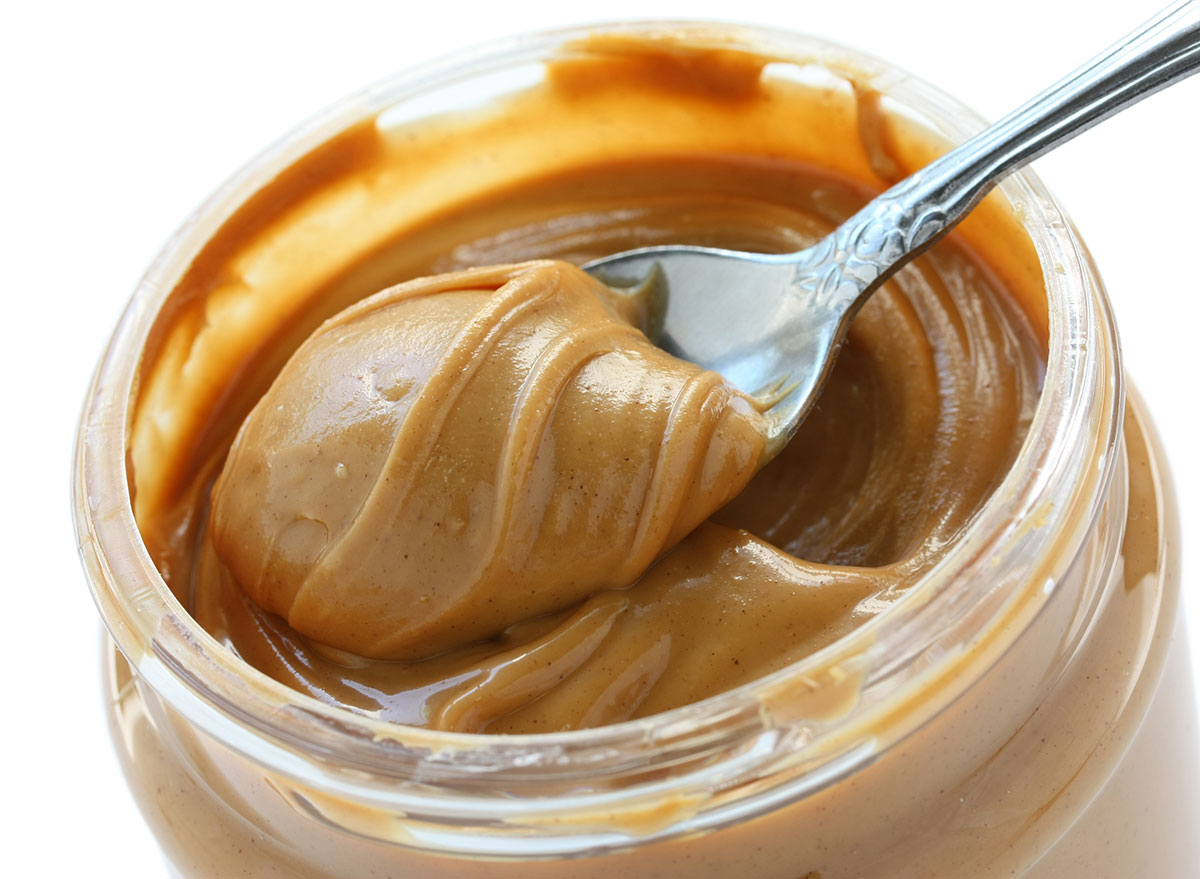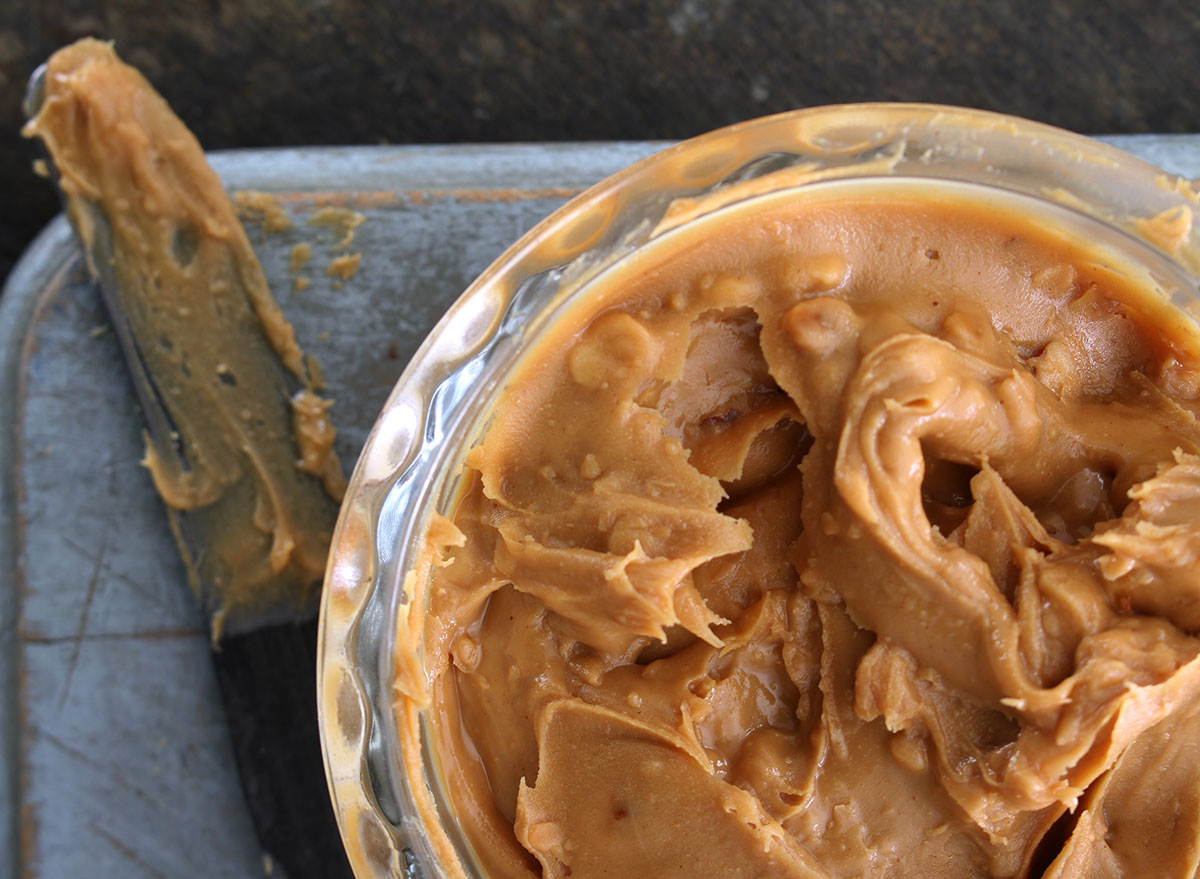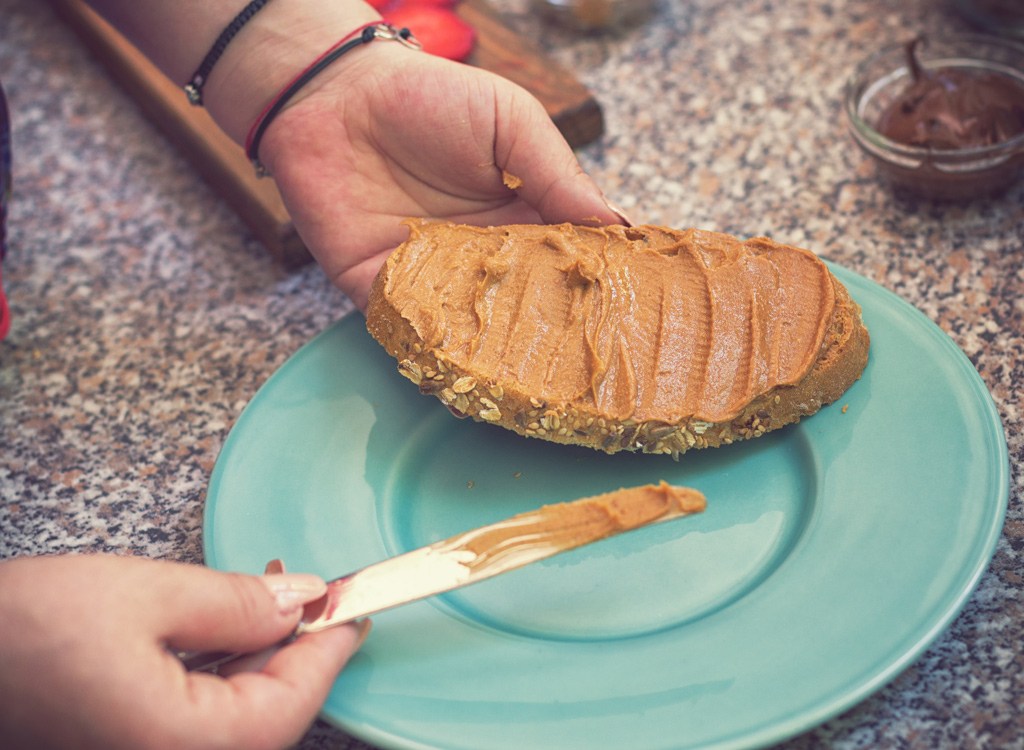Peanut butter is one of those pantry staples in nearly every American household. It's buttery, nutty taste makes it addicting for sandwiches, smoothies, and plenty of snacks. It helps that, generally speaking, it's a healthy addition to our diets. However, too much of it can put extra stress on our bodies and digestive system, resulting in some pretty ugly side effects. Here, we spoke with nutrition experts to understand the recommended serving size of peanut butter, as well as dangerous risks if you are eating too much peanut butter at once.
How much peanut butter is too much?
While Dr. Josh Axe, DNM, CNS, and founder of Ancient Nutrition, isn't the biggest fan of peanut butter and believes other nut kinds of butter, like almond, are smarter choices. (Don't know the difference? Here's a comparison between Peanut Butter vs Almond Butter.) He says 1 to 2 tablespoons a day is just fine. In most cases, this is one serving, and more than enough to smother both sides of a P.B. and jelly sandwich. If possible, he also suggests checking out the peanut butter brand's back label to ensure it's made from Valencia or Jungle peanuts, which are typically organically grown.
"If you eat the right types, peanut butter can potentially be used to make a nutritious snack or breakfast—such as a smoothie or 'ants on a log'—since peanuts provide protein, healthy fats, some carbs, and even some antioxidants," he continues.
You may experience an allergic reaction.

Peanuts are not only a common allergy, but they also tend to be grown, processed, and stored in a way that makes them susceptible to mold and—wait for it—going rancid, Dr. Axe warns. This is mainly due to the fact that peanuts are grown on the ground, which causes them to become very moist, and a lot of them wind up containing mycotoxins, which are various types of mold.
"This is one contributing reason as to why so many kids today have food allergies or inflammatory immune reactions after eating peanuts," says Dr. Axe.
You may have inflammation.

You likely have heard of omega-3 and omega-6 since they are vital antioxidants we need. However, sometimes we can have too many of these essentials, leading to problematic issues. As celebrity chef and certified nutritionist Serena Poon explains, two tablespoons of peanut butter contain 4,709 milligrams of omega-6 fatty acids and 26.6 milligrams of omega-3 fatty acids. The goal, Poon says, is to keep the ratio of omega-3 to omega-6 1:1, so having peanut butter disrupts this balance.
"A diet that is much higher in omega-6 fatty acids than omega-3 fatty acids can lead to inflammation, oxidative stress, and clogged arteries," she continues. "Eating one spoonful of peanut butter isn't going to send you into cardiovascular disarray, but consistent overeating of peanut butter could lead to negative health effects."
You may gain weight.

Though delicious, nut butter is high in calories based on volume, so it can be easy to eat a lot of them and to wind up consuming lots of calories without realizing it, Dr. Axe shares. If it's a regular habit, this can pack on the pounds. Plus, like Poon, Dr. Axe says consuming lots of omega-6s, which can promote inflammation, may also hinder metabolic health, making it harder to lose weight.
You may have raised cholesterol levels.

Historically, some of the conventional peanut butter brands would use partially hydrogenated oil, which is a source of trans fat that can raise your "bad" cholesterol levels. In 2018, this ingredient was banned by the Food and Drug Administration due to its impact on our health, so many were forced to stop using it. Some brands have switched to adding fully hydrogenated oils to their peanut butter, which do not contain trans fats but are still less healthful than the peanuts' natural oils, Poon explains. She recommends sticking as close to nature as possible with all foods, and hydrogenated oils are highly processed and alter the structure of an otherwise healthy component of the peanut plant.
"Seek out peanut butter brands that contain just peanuts and salt to avoid hydrogenated oil consumption," says Poon.
You may have more sugar than you realize.

Part of the reason peanut butter is so addicting to many is all of the added sugars in the jars. This creates a sweeter taste and one that's harmful to our diets. As an example, Poon says if a brand packs on three grams of sugar per two tablespoons of peanut butter, four spoonfuls would be half of the daily recommendation for sugar intake.
"Consistently overeating added sugar can lead to weight gain, inflammation, chronic disease, heart problems, and more," she says.
No comments:
Post a Comment